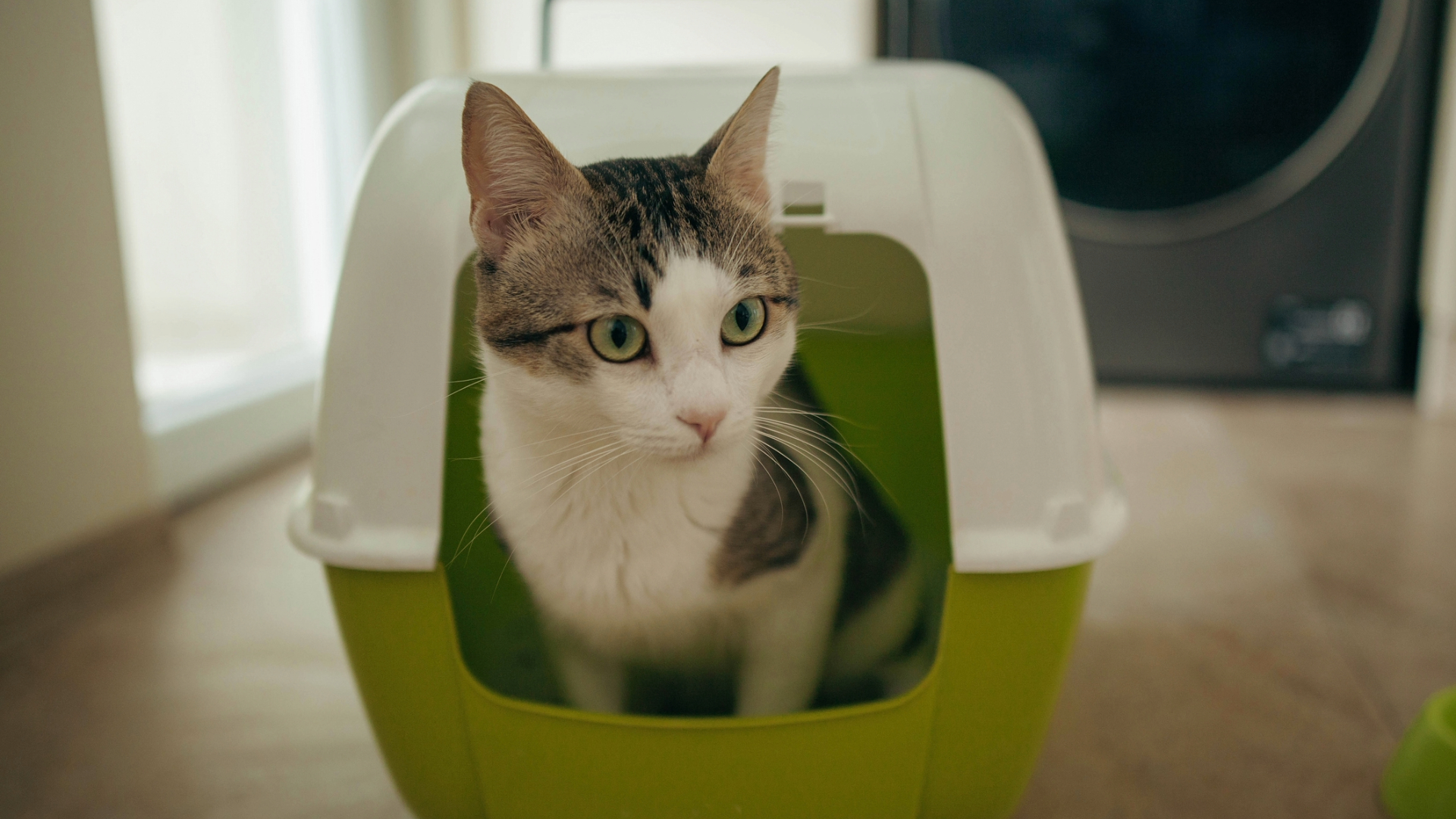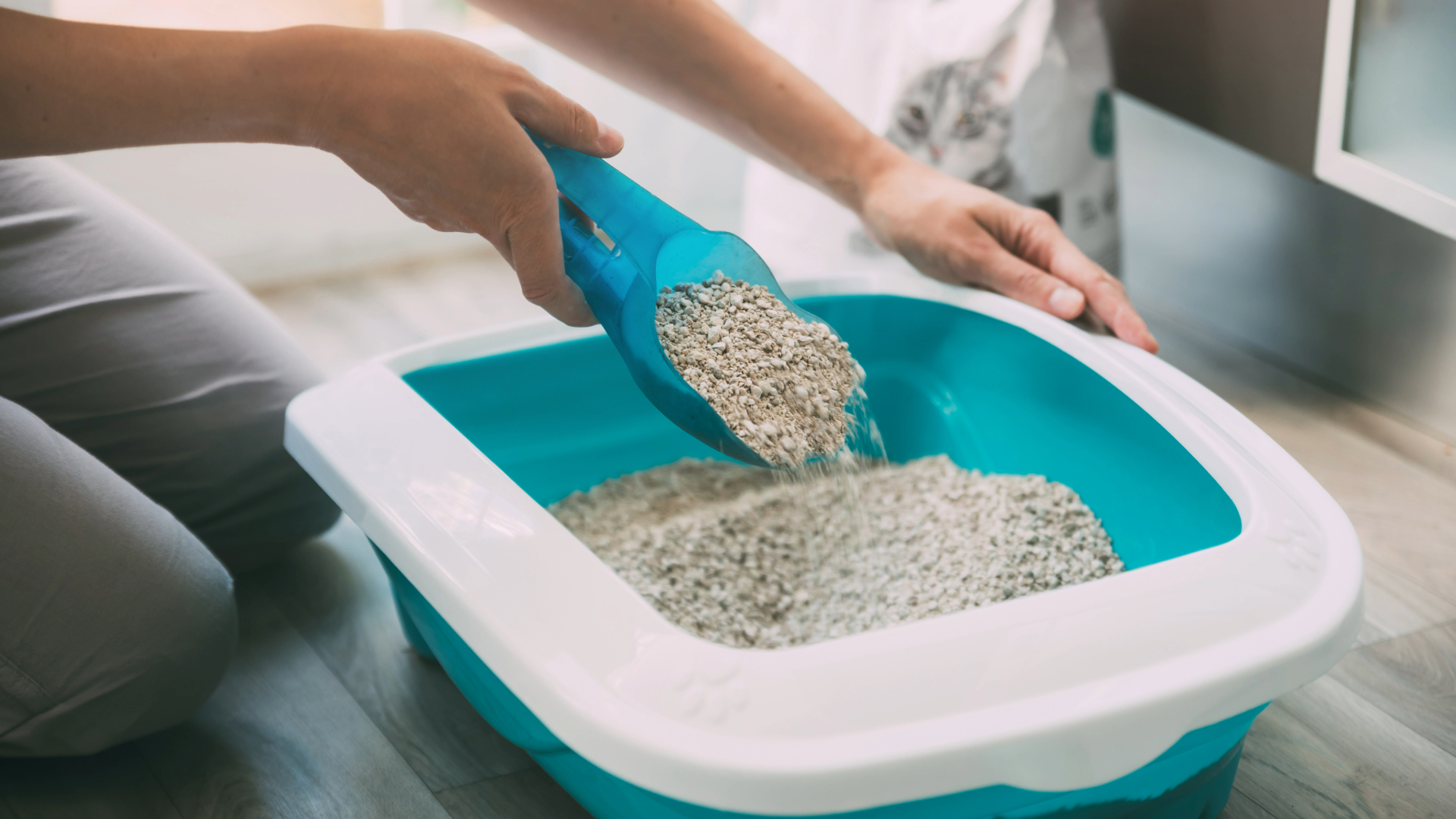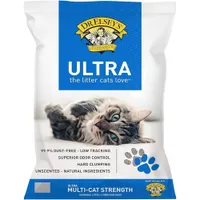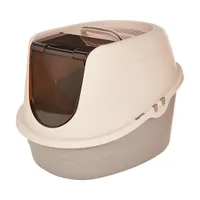Want to reduce cat litter smells? These 10 simple tips will help (you never would have thought of number 7!)
Say goodbye to odors with these vet-approved steps to reduce cat litter smells

Cat litter smells can be a major issue for both house cats and their owners. Persistent odors from a litter box can make maintaining a pleasant home environment challenging.
Thankfully, there are simple and effective solutions to tackle this problem. Reducing cat litter smells is not only essential for keeping your home fresh but also ensures your feline friend feels comfortable and happy.
I'm a vet with over 13 years of experience, and have shared my expert tips to help cat owners eliminate unpleasant odors. From choosing the right litter box to establishing a consistent cleaning routine, these practical steps are easy to implement and highly effective.
If you’re considering upgrading your litter box setup, don’t miss our guides to the best cat litter boxes or best automatic cat litter boxes to find the perfect option for your pet. Read on to learn how to banish cat litter smells for good!
How do I stop my cat litter smells?
1. Use a high-quality clumping litter
High-quality clumping litter traps moisture and odors effectively, reducing unpleasant smells. Look for litters designed to clump tightly and absorb odors. Clumping litter also makes daily scooping easier, preventing odors from building up. If you're unsure on what to buy, read our helpful guide to the best cat litter options.
Dr Elsey’s Precious Cat Ultra Clumping Clay Cat Litter
This highly-rated cat litter is affordable, hypoallergenic, and recommended by vets. It has a hard clumping formula to trap bad smells and liquid.
2. Scoop the litter box daily
Get the best advice, tips and top tech for your beloved Pets
Scooping the litter box daily is the most effective way to reduce smells. Urine and feces release strong odors which linger if not removed promptly. By scooping regularly, you prevent the growth of odor-causing bacteria and maintain a cleaner environment.
3. Change the litter regularly
Even the best clumping litter needs to be replaced periodically. Empty the entire box and replace the litter every one to two weeks, or more often if you have multiple cats. This prevents moisture buildup and bacterial growth, which are major contributors to bad smells. You might want to read our guide on how often to change cat litter.
4. Choose a litter with odor-neutralizing properties
Many litters include odor-neutralizing ingredients like baking soda, charcoal, or activated carbon. These additives effectively absorb and neutralize unpleasant smells, keeping the box fresher for longer.

5. Place the litter box in a well-ventilated area
Proper airflow helps minimize odors. Avoid placing the litter box in small, enclosed spaces like closets or bathrooms, where smells can become trapped. Instead, choose a well-ventilated location, such as near an open window.
6. Use a litter box with a cover or hood
Covered litter boxes help contain odors while providing your cat with privacy. However, be sure to clean them regularly, as trapped moisture can lead to bacterial growth.
Amazon Basics No-Mess Enclosed Hooded Cat Litter Box
Thanks to the hooded design, this budget-friendly litter box keeps smells and spills contained. Our editor, Georgia Guerin, has an identical model and says it prevents unwanted mess in her home.
7. Add baking soda to the litter
Sprinkling a small amount of baking soda at the bottom of the litter box before adding fresh litter can help neutralize smells. Be cautious not to use too much, as it may irritate your cat’s paws.
8. Keep the litter box in a quiet area
Cats prefer a peaceful environment when using their litter box. Stress can lead to inappropriate urination, which increases odors. Place the litter box in a low-traffic area to encourage regular use and minimize smells. If you're stuck for ideas, read our guide on ways to hide the litter box.
9. Consider adding a second litter box
If you have multiple cats, ensure you have enough litter boxes. The golden rule is one box per cat, plus an extra. For example, three cats should have four litter boxes. This prevents overcrowding and reduces odors.
10. Try a self-cleaning litter box
Self-cleaning litter boxes are a convenient option for busy cat owners. Many models even connect to your smartphone, making maintenance effortless.
You might also want to read our guide to cat litter hacks.
Litter box mistakes to avoid
A sudden change in the smell of your cat’s litter may indicate an underlying health issue. Strong-smelling urine or feces could point to problems with their digestive system or urinary tract. Increased frequency of litter box visits can also signal a medical concern. If you notice these changes, consult your vet for advice.
Selecting the right litter box is crucial for both odor control and your cat’s comfort. Here are a few common mistakes to avoid:
- Choosing a box that’s too small: Cats need space to move around comfortably.
- Skipping regular cleaning: Even the best litter box won’t stay fresh without routine maintenance.
- Ignoring your cat’s preferences: Some cats prefer open boxes, while others like covered ones.

How often should I change my cat's litter?
Like many pet parents, you might be questioning how often to clean a litter box. The frequency of litter changes depends on the type of cat litter you use and how many cats you have. As a general rule, replace all the litter weekly to prevent odor buildup and maintain a clean environment.
- Daily scooping is essential to remove waste and keep the box fresh.
- Larger litter boxes may require less frequent full changes but still need daily maintenance.
- Some cats are very particular and may avoid using a box that isn’t spotless, so adjust cleaning frequency to meet their needs.
- For households with multiple cats, more frequent changes are necessary. Overcrowded boxes can lead to territorial disputes and unclean conditions.
Neglecting to replace litter regularly allows waste to accumulate, creating strong odors that may deter your cat from using the box. Dirty litter can also harbor bacteria and parasites, posing a risk to your cat’s health.
Managing cat litter smells doesn’t have to be a daunting task. By following these simple tips— such as using high-quality clumping litter, maintaining a consistent cleaning schedule, and ensuring proper ventilation—you can keep your home fresh and odor-free. A clean litter box not only benefits you but also ensures your cat feels comfortable and content.
Read next: How to keep cat litter off the floor and Can I use sand as cat litter? Or discover how self-cleaning litter boxes work.
Emma Chandley is a vet with 14 years of experience and has a keen interest in surgery. After graduating from the Royal Vet College in London in 2011, she achieved a postgraduate certificate in small animal surgery from the British Small Animal Veterinary Association and Nottingham Trent University. She was then awarded advanced practitioner status in the same discipline by The Royal College of Veterinary Surgeons. She has a black Labrador and two pygmy goats at home.



